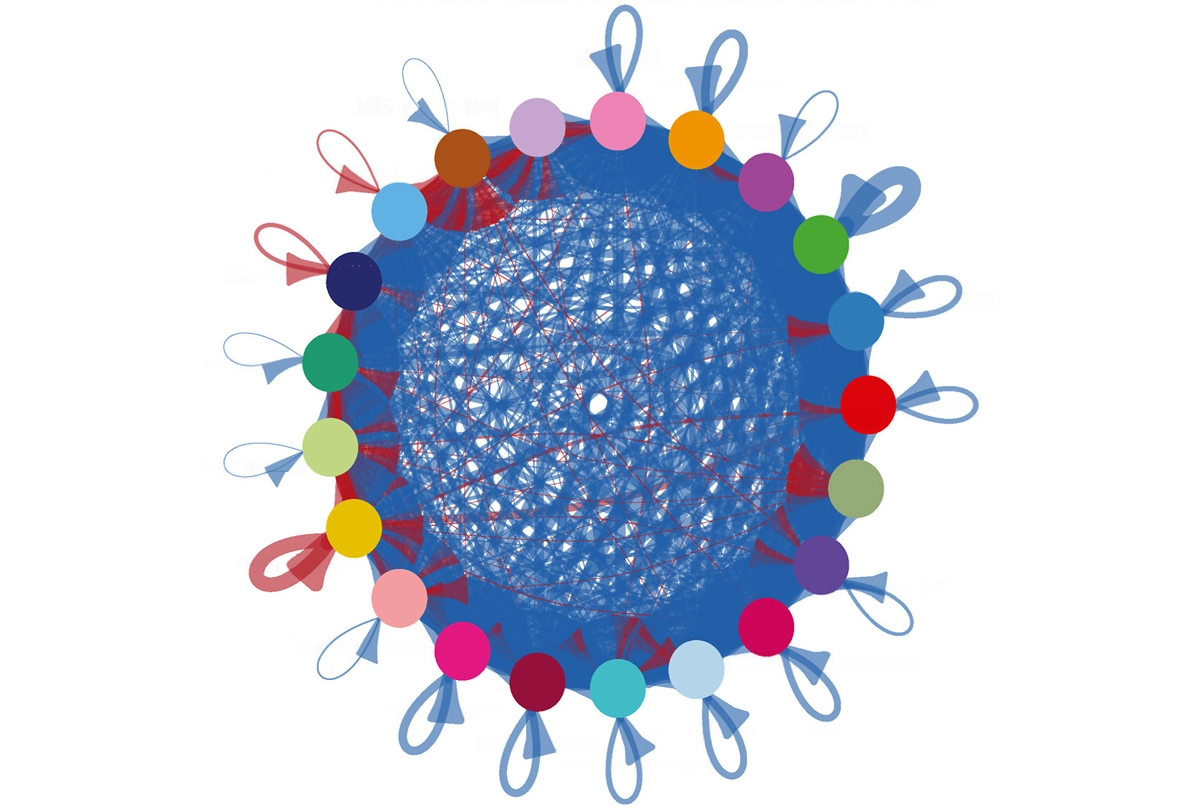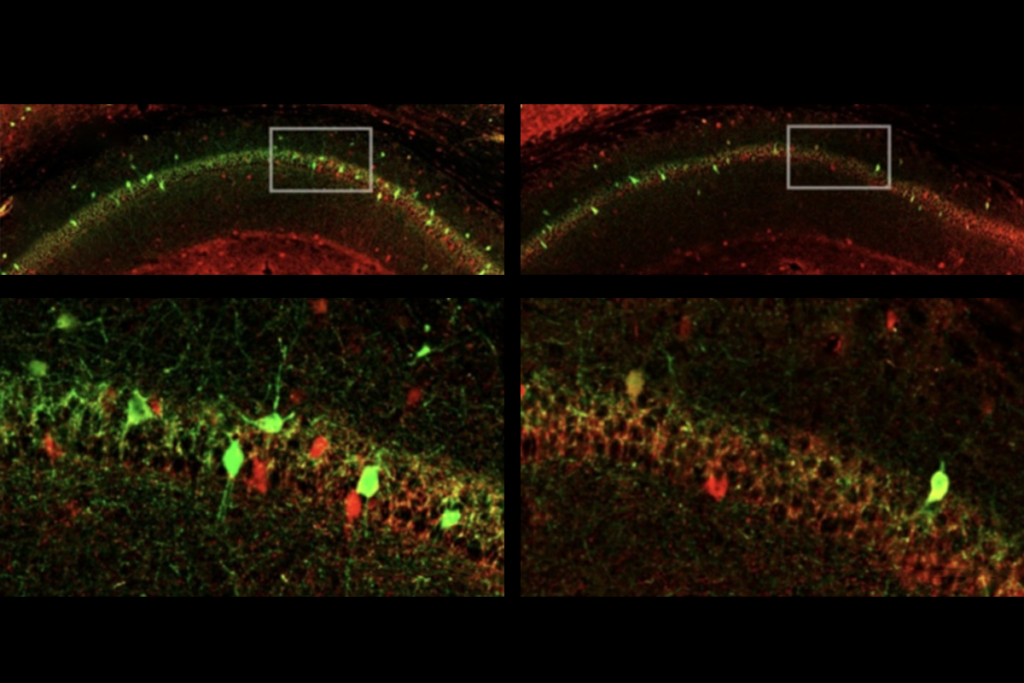- The autism-linked gene CHD8 regulates the expression of thousands of genes involved in the development of neurons, brain structures, cilia and the extracellular matrix, according to a study in cerebral organoids. Heliyon
- Variants of the TRIO gene, which are associated with autism, schizophrenia and intellectual disability, lead to altered synaptic structure and function in mice, according to a preprint. Spectrum has previously reported on TRIO mutations in autism. bioRxiv
- Autistic people are more likely than non-autistic people to have functional somatic or motor disorders, according to a review of studies. Autism
CHD8 gene; minority participation in research; machine-learning autism screen
Here is a roundup of autism-related news and research spotted around the web for the week of 26 August.
By
Jill Adams
27 August 2024 | 2 min read

Lost connections: Most cell-to-cell communications in cerebral organoids are weakened (blue lines within the central circle) when the autism-linked gene CHD8 is knocked out, and only a few are strengthened (red lines).
- Black Americans, Asian Americans and Pacific Islanders are generally motivated to participate in autism research to advance knowledge, but differing beliefs about autism can serve as a barrier to such engagement. Journal of Community Genetics
- Glutathione levels in the frontal and occipital lobes are similar in autistic and non-autistic adults, suggesting that oxidative stress is not a biomarker for the condition. PLOS One
- A machine-learning model applied to 28 medical screening and history items in children under 2 years old appears to be a sensitive and specific predictor of autism traits and cognitive function. JAMA Network Open
- The U.S. Food and Drug Administration has designated NGN-401 gene therapy as a regenerative medicine advanced therapy, which allows a speedier development path for the treatment. Rett Syndrome News
tags:
Recommended reading

Plumbing the link between anti-CASPR2 antibodies and autism; and more
By
Jill Adams
2 December 2025 | 1 min read

Organoid study reveals shared brain pathways across autism-linked variants
By
Giorgia Guglielmi
19 February 2026 | 4 min read
Explore more from The Transmitter
How insights from network theory can boost interdisciplinary efforts
By
Emily Singer
23 February 2026 | 0 min watch

Frameshift: Raphe Bernier followed his heart out of academia, then made his way back again
By
Katie Moisse
20 February 2026 | 8 min read

Single gene sways caregiving circuits, behavior in male mice
By
Natalia Mesa
18 February 2026 | 6 min read
Cite this article:
